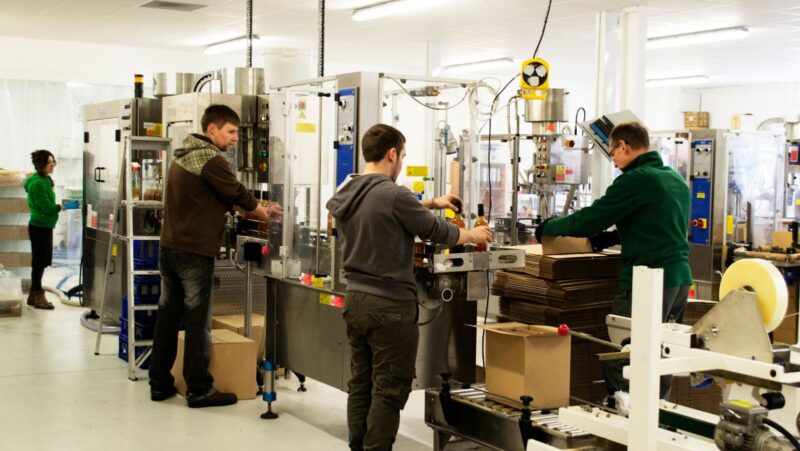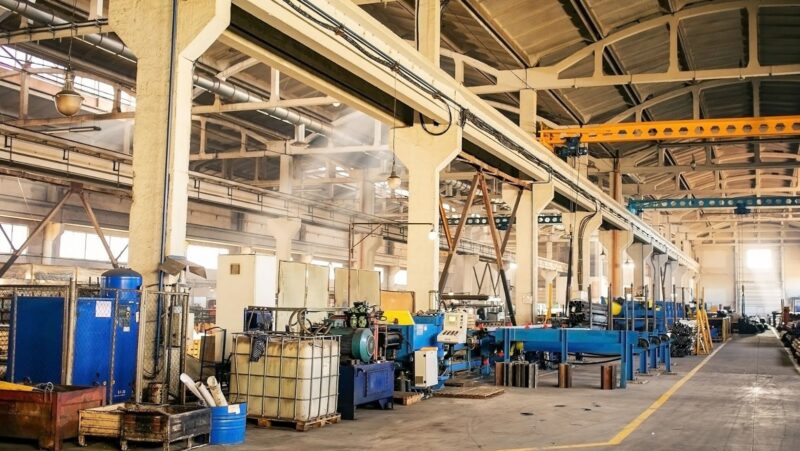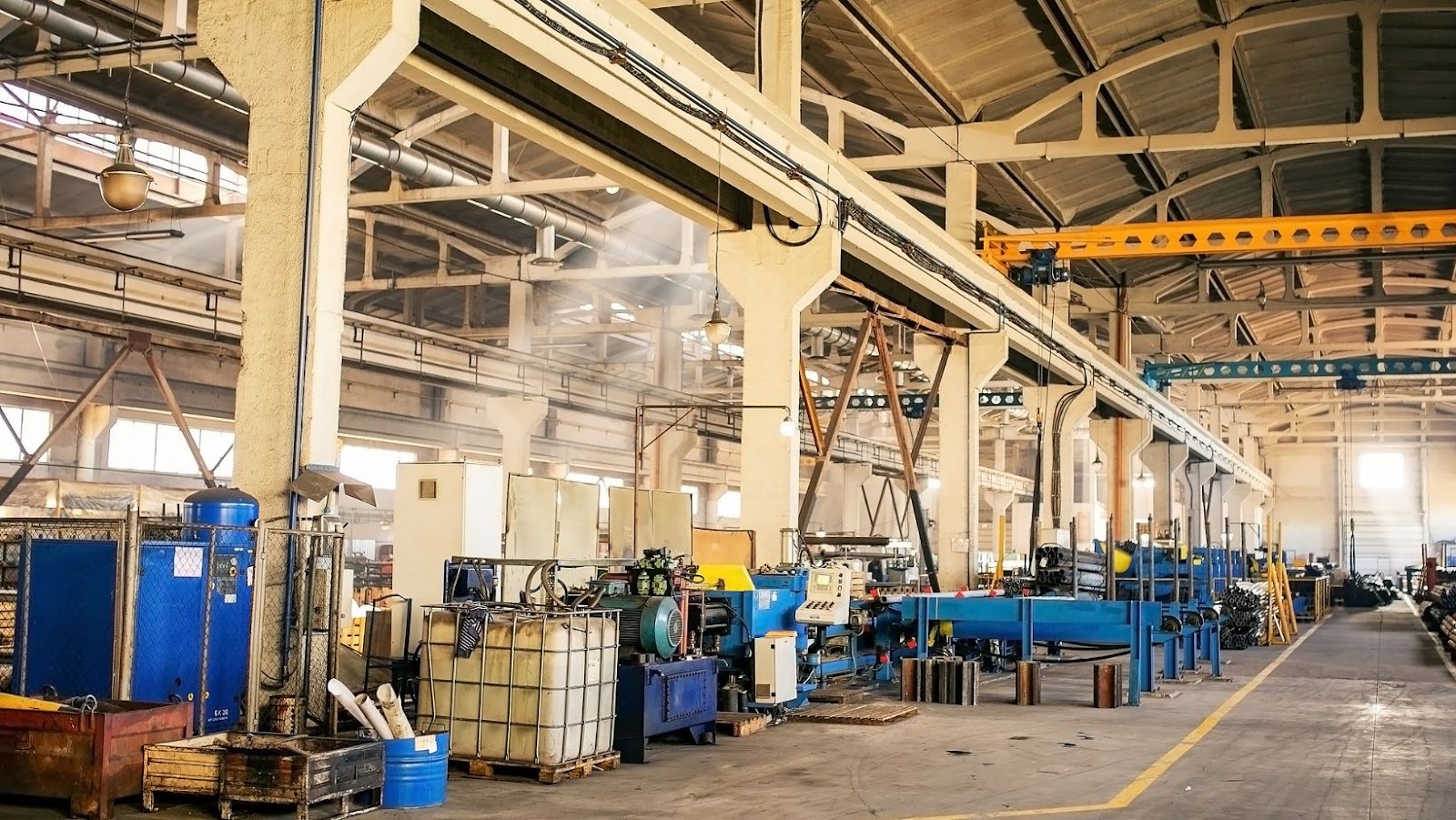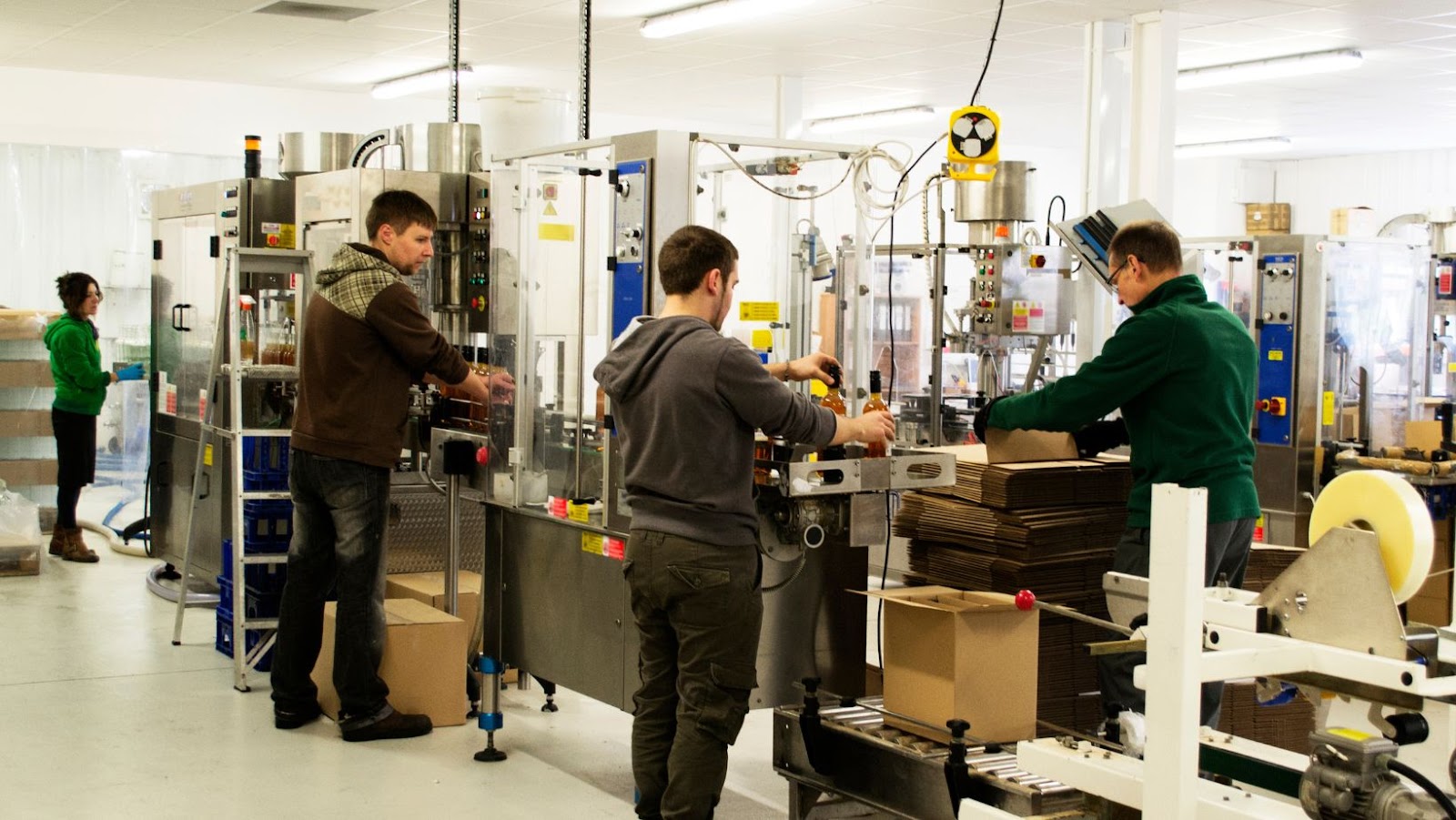
Oqton is revolutionising the 3D printing landscape by bringing its Intelligent Manufacturing Operating System to the industry. By leveraging their expertise in AI, the engineering startup has managed to create an OS which simplifies the development process and increases productivity.
The Oqton system is designed to make 3D printing easier for users and provides a wide range of features that can be used to optimise the 3D printing process. Oqton has shifted the 3D printing industry and strives to make it easier, more efficient, and more cost-effective.
What is Oqton?
Oqton is a cloud-based software platform that enables users to easily manage 3D printing workflows and other manufacturing processes for operational efficiency. Founded in 2013, Oqton has grown and developed into an invaluable asset for the industrial manufacturing sector. This innovative system aggregates and manages data across various 3D printing processes, automating tasks such as process optimization, cost calculation, design validation, and more. As a result, Oqton simplifies production planning and maximise time efficiency from the initial concept to the finished product.
Oqton’s mission is to empower engineers by empowering people with the tools they need to succeed in today’s ever-changing industrial landscape. The company provides an all-in-one solution for managing large scale 3D printing operations with optimised workflows, secure data storage and powerful analytics capabilities that help engineers save time, money and improve their products. This technology leverages predictive analytics to gauge user performance and recommend improvements in order of magnitude which can increase productivity while saving costs significantly on behalf of companies using its software suite. Additionally, Oqton provides onsite training so that engineers can quickly become proficient with their new equipment – something not typically included in other software solutions in the industry today.
What is an Intelligent Manufacturing OS?
Oqton’s Intelligent Manufacturing Operating System (IMOS) provides an AI-driven approach to the additive manufacturing process. Using advanced technologies such as machine learning and optimization algorithms, IMOS automatically creates, optimises and manages all stages of part production—from design to completed part—making it easier for businesses to benefit from 3D printing.
IMOS is cloud-based, meaning that you can easily access your manufacturing execution capabilities securely in the cloud. Furthermore, it features various modules designed to optimise the 3D printing workflow to deliver high quality parts while reducing cycle time and costs associated with 3D printing. From material selection and part preparation to automated production planning and optimization, the platform provides an end-to-end solution that helps streamline workflows within any additive manufacturing setup. Additionally, IMOS maximises machine utilisation by allowing companies to develop on demand manufacturing solutions with just a few clicks of a button.
Oqton Brings Intelligent Manufacturing OS to 3D Printing
Oqton has recently greatly impacted the 3D printing landscape with its advanced Intelligent Manufacturing Operating System. Its advanced features, such as job planning, optimization, and analytics, have allowed 3D printers to become smarter and more efficient.
Let’s look at how Often is revolutionising the 3D printing industry.
Automation and Efficiency
The presence of Oqton’s software within the 3D printing industry is revolutionising the sector. Automation and efficiency improvements created by their software platform make it easier than ever to produce tailor-made parts. With advanced functionalities, Oqton’s cloud-hosted software platform helps new and experienced users reduce tedious manual processes while streamlining their 3D printing production-cycles.
Oqton’s automated workflows enable a full overview of all active jobs in real time, giving users more control over the stages their projects are in at the same time ensuring successful parameter selection per job. Furthermore, using Newton’s advanced artificial intelligence (AI), which predicts necessary core parameters before any prints begin – from quantity to build time optimization – allows for increased efficiency based on customer & design specific parameters. This innovative AI not only speeds up the process of producing tailor-made parts but also minimise material waste as part of efficient process optimization, as well as minimising cycle times and reducing operational costs through state-of-the-art automation algorithms for print bed fill calculations to speed up lead times and optimise resource commitments over time.
Undoubtedly, through leveraging Oqton’s platform, 3D printing will reach unprecedented heights when it comes to precision, complexity and speed.
Flexibility and Scalability
As 3D printing is rapidly becoming more popular, Oqton has become a leader in producing metal parts. Compared to traditional production processes such as CNC machining and casting, 3D metal printing reduces lead times by drastically reducing the need for tooling and post-processing. In addition, with the flexible, automated Oqton platform, companies have an easier time scaling up their production capabilities and expanding into new industries.
With the help of Oqton, companies can quickly print complex parts in all kinds of materials, allowing them to build prototype models at no extra cost. Companies also benefit from efficiently utilising materials as only what’s needed is printed. This helps them save money and reduce waste.
Oqton’s proprietary software offers a much more efficient method for 3D part management than traditional methods with the ability to manage job parameters such as print time and quality via AI-based optimization tools. In addition, the software offers various features including fast CAD repair capabilities and error detection algorithms that help speed up development times while exiting projects with superior quality results, allowing companies to deliver products quicker and with better results.
Thanks to Oqton’s work in software solutions that pair perfectly with additive manufacturing technologies, they allow companies to develop custom solutions at an accelerated pace while reducing costs and increasing their efficiency in 3D part production.
Cost Savings
The 3D printing industry has seen a dramatic revolution by introducing new technologies and platforms over the past few years. One of these innovations is Oqton, a cloud-based software platform that enables factories to move from traditional production methods to 3D printed manufacturing. The Oqton platform simplifies and expedites AM (additive manufacturing) processes through its cloud-based software, allowing manufacturers to embrace digital production for cost savings across actions such as developing and designing parts, automating workflows, driving real-time machine performance, and securely storing data in the cloud.
On the design side, Oqton’s software helps engineers create cost-effective 3D printing methods that reduce material waste and adjust parameters for producible designs without sacrificing quality or aesthetic considerations. Additionally, users can leverage Oqton’s automation features to analyse part designs before going into production, making informed decisions on materials selection and optimising their manufacturing process accordingly. Ultimately, this ensures workers are not wasting time producing parts that cannot easily enter into production or do not meet certain requirements.
In addition to design optimization capabilities, the use of Oqton offers improved efficiency by optimising machine cycles & processes; reducing human intervention as well as error rates; streamlining communication between users & machines; ensuring data privacy & security; providing a bird’s-eye view in real time on factory floors through tracking tools; facilitating remote collaboration among engineers; improving quality control thanks to standardised customised outputs compliant with global standards; forecasting lead times for better integration into company delivery timelines; providing topology optimization tools relevant for automated tooling adjustment & adaptive support structures done at the click of a button on the platform interface itself thereby eliminating physical testing iterations coupled with faster prototyping due to quick access to parametric settings. All in all a machine shop using Oqton instead of traditional methods has more chances of staying ahead in terms of costs savings through effectiveness & efficiency when it comes to AM (Additive Manufacturing) processes compared to any other alternative be it subtractive or traditional methods like forging – which may not provide same degree precision provided by AM process itself thereby leading customers towards wastage leading then towards – for cost/time loss!

Oqton’s Intelligent Manufacturing OS
Oqton, a Dutch software company, is revolutionising 3D printing with their Intelligent Manufacturing Operating System (IMOS).
IMOS is designed to improve the scalability, automation, security, and sustainability of the 3D printing process. It also offers a unified, cloud-based infrastructure enabling manufacturers to manage data, models, and workflow throughout their 3D printing operations.
This article will explore Oqton’s IMOS and how it is transforming the 3D printing landscape.
Automated Design
One of the most exciting features of Oqton’s Intelligent Manufacturing OS is its automated design capabilities. By leveraging the power of AI and machine learning, Oqton can use intelligent algorithms to turn 3D models into manufacturing instructions that virtually any production line can use. This dramatically reduces the time and resources it normally takes to turn 3D models into usable products.
The automated design process works in a few easy steps. First, users upload their 3D models to Oqton’s cloud-based platform. Then, the software’s AI-driven engine automatically detects potential problems and adjusts the model to fix them with minimal user input required. Finally, Oqton’s autodesign engine uses advanced computer vision techniques to generate detailed instructions on manufacturing the product from start to finish. This enables manufacturers to produce high quality parts in less time and with greater precision than ever before – all without requiring them to have complex fabrication expertise or deep knowledge of CAD software.
By leveraging AI-driven automation technology, Oqton is revolutionising 3D printing and making it easier for manufacturers of all sizes to create customised products quickly and cost effectively. The possibilities are truly endless!
Automated Manufacturing
At the heart of Oqton’s Intelligent Manufacturing OS is a powerful collaboration layer providing advanced automation and integration capabilities to drive the implementation of smart-manufacturing operations. This automation layer features an innovative set of tools, services, and APIs enabling users to streamline complex manufacturing processes, improve efficiency of product development cycles, and facilitate real-time interaction between processes.
The automation capabilities built into the Intelligent Manufacturing OS provide several advantages over traditional 3D printing models. By connecting systems automatically, users can quickly link multiple machines up and get up-to-date printing schedules for each machine. To further optimise time spent in the factory or workshop Oqton also feeds data from a variety of software third party systems, giving users further insights into their production process. With this data at hand operators can automate many tasks previously done manually and make sure all subassembly parts are sorted correctly before being sent to be 3D printed.
Moreover it includes features such as automated job scheduling that allow users to easily define what jobs should be sent to which machines at certain times while tracking everything remotely through dashboards accessible on mobile devices or desktop computers. This allows those running additive manufacturing operations to sit back and concentrate on engineering without wasting time on potential workload disruptions due to manual errors in creating batches or jobs sent out with incorrect parameters.
Automated Quality Control
One of the benefits of using Oqton’s Intelligent Manufacturing OS is that it provides an automated quality control system for 3D printing operations. This allows for immediate feedback about whether a process meets desired requirements, and if not, the system can dynamically adjust a part’s parameters to ensure quality is achieved.
Quality control begins from the moment a job arrives in the factory, analysing and flagging potential discrepancies between instructions and incoming assets related to colour, print resolution, or post-processing methods. As products are made on-site, Oqton captures real-time data from every production stage, leveraging machine vision technology to detect design or build inconsistencies. In addition to detecting issues such as warping or layer separation on 3D prints, Oqton can monitor milling and other manufacturing equipment to ensure specified tolerances are maintained throughout an entire production run.
By automating quality control measures, Oqton eliminates late-stage product defects caused by manual processes while saving time and money by avoiding rework or scrap costs. By flagging issues that arise due to either design or build issues as they occur early in production cycles, Oqton also helps factories avoid late-stage product qualification failures or customer complaints for mismanufactured parts. This means that factories who use Oqton’s Intelligent Manufacturing OS are better equipped to produce high quality parts with improved efficiencies at scale.
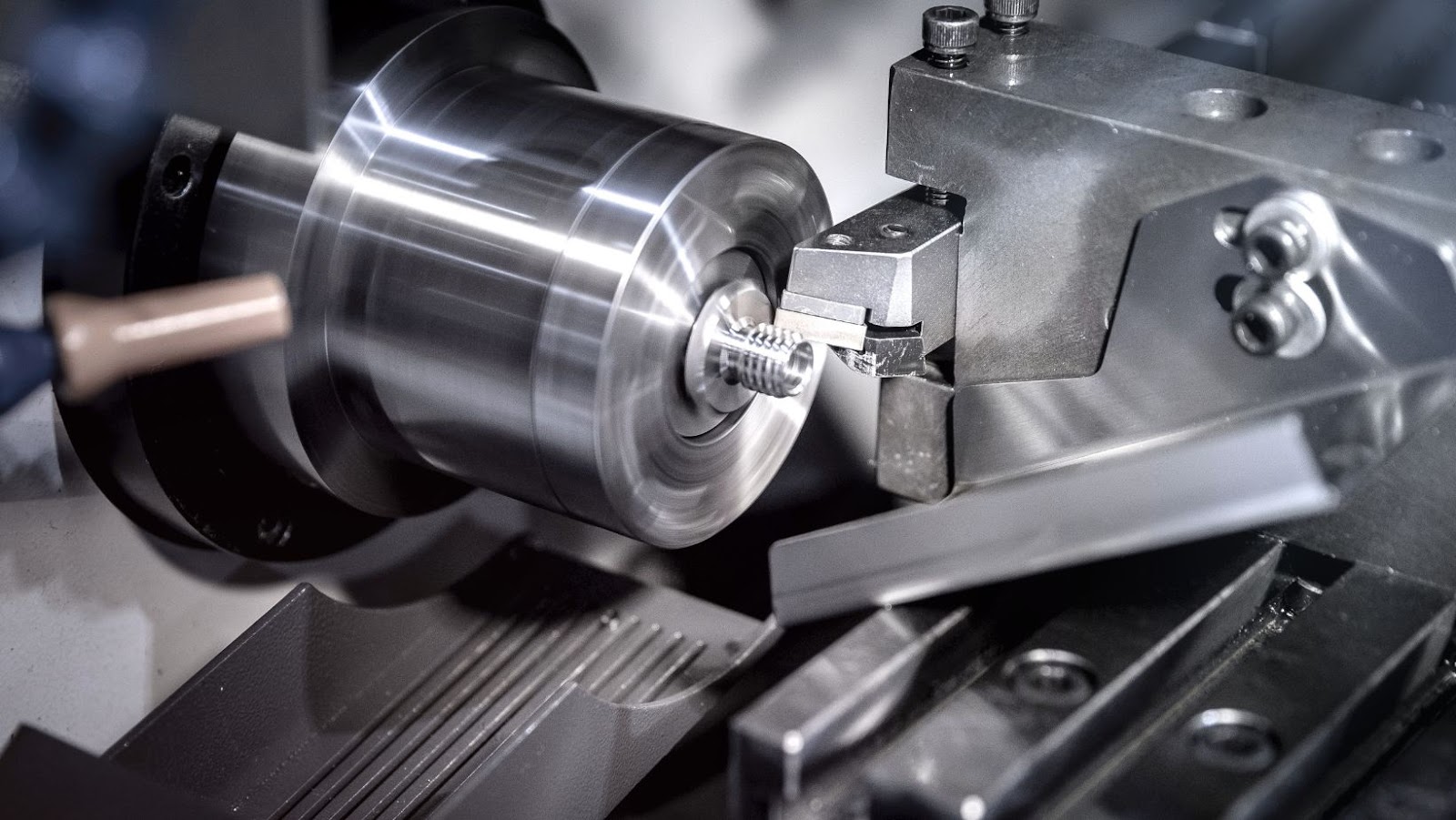
Benefits of Oqton’s Intelligent Manufacturing OS
Oqton is a cloud-based platform that revolutionises 3D printing by bringing intelligent manufacturing OS to the sector. It allows businesses to automate their 3D printing operations and offers job scheduling, automated nesting, and real-time monitoring features.
By using Oqton’s intelligent manufacturing OS, businesses can enhance their 3D printing workflow and improve their businesses’ efficiency.
Let’s explore the various benefits that Oqton’s advanced technology can offer to businesses.
Improved Productivity
Oqton’s Intelligent Manufacturing OS is helping improve productivity across the 3D printing industry. The OS provides an end-to-end workflow for managing and optimising production operations, from order scheduling, file preparation, through to post-processing and inventory management. In addition, it leverages advanced software algorithms and analytics to create greater operational efficiency for customers, allowing them to quickly respond to market demand.
The resulting gains in productivity from Oqton’s workflow optimization come from:
- Automation of manual tasks such as task scheduling, job set up and order tracking, which reduces human errors;
- Increased visibility into key performance indicators such as print speed, print utilisation and downtime across your distributed network of 3D printers;
- Improved uptime through predictive maintenance and real time monitoring of machine health;
- Optimised resource scheduling through detailed analysis of customer requirements on past orders;
- Improved collaboration with integrated team communication tools;
- Enhanced product traceability with automated data capture throughout the entire printing process.
These features enable businesses to reduce production costs while improving product delivery times, making them more competitive in the marketplace. Oqton’s Intelligent Manufacturing OS is revolutionising how manufacturers manage their 3D printing operations and unlock their full potential. Thanks to Oqton’s innovation, manufacturers across the globe can now work smarter and faster with improved productivity.
Increased Accuracy
Oqton’s Intelligent Manufacturing OF assists in the evolution of 3D printing, or additive manufacturing. 3D printing has made it possible for manufacturers to produce objects that were once difficult or impossible via traditional manufacturing methods. With Oqton’s technology, users can now procure 3D products with increased accuracy and reliability faster than ever while reducing costs.
Oqton’s software features various CAD/CAM optimization tools that integrate with both additive and subtractive manufacturing benefits. Using an optimised production cycle with automated workflow processes, this software helps to reduce energy consumption, optimise cost per part and tracks quality throughout the entire project lifespan. Additionally, a single user interface eliminates the need for complex design programs and allows for quick customization to any product cycle leading to improved accuracy throughout all stages of development. In terms of accuracy, Oqton’s software boasts repeatable precision results due to its advanced algorithms which reduce overall build errors by up to 40%. Furthermore, when coupled with data-driven error-proofing technology such as Oqton’s Automatic Feature Recognition (AFR) system, even greater accuracy is ensured when producing complex products such as prototypes or complex industrialised parts.
Overall, Oqton’s one-stop solutions help drive rapid digital transformation with enhanced flexibility plus automation capabilities that present significant value-added attributes over traditional methods in the overall Industry 4.0 process today.
Reduced Waste
Oqton’s Intelligent Manufacturing OS makes 3D printing more efficient, delivering significant cost and materials savings to businesses. In addition, Oqton’s platform enables them to take advantage of cloud-based simulations and digital twins that enable parts to be designed faster and with fewer iterations, reducing wasted time, materials, money and energy.
By enabling businesses to access all 3D print processes through a connected factory environment, the Intelligent Manufacturing OS reduces the need for costly prototyping. This means businesses can save money by reducing reliance on expensive laboratory testing processes — tests can now take place virtually using simulation software rather than physical testing of real parts before production. The increased efficiency also delivers time savings with earlier design validation leading to reduced build times in hours or days.
Additionally, Oqton’s platform optimises the pre-printing process, taking into account crucial elements such as personalization requests right down to orientation optimization (resulting in an improved part surface finish or fewer supports), as well as intelligent slicing algorithms for optimal material usage since rarely any raw material goes unrecycled. As a result, businesses are achieving unprecedented levels of waste reduction and overall cost savings — in some cases up to 60% compared to traditional manufacturing methods — that go straight back into the bottom line.
tags = Oqton, 3D Printing, Intelligent Manufacturing OS, automate the end-to-end manufacturing process., oqton os 3d cnc serieswiggersventurebeat,

